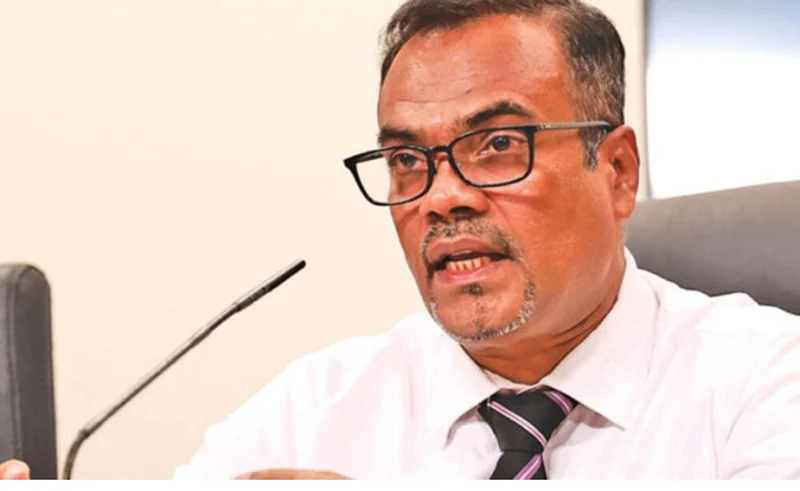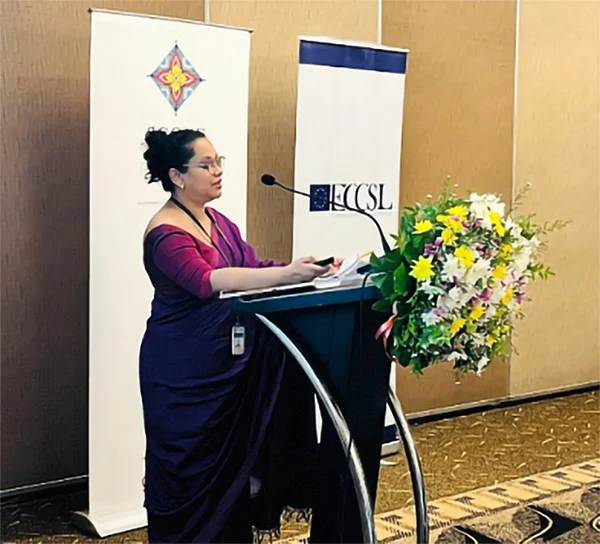Business
Sri Lanka tea industry facing up to new challenges

Since the Spanish flu infected close to a third of the, then global population a century ago, not even the First & Second World Wars could bring about an enormous tragedy on the human race until the COVID 19 pandemic hit all corners of Planet Earth. The New Corona Virus cases are already racing towards the 50 million mark and the death toll exceeding 1.2 million people with just the Second Wave of the pandemic beginning to spread all over the world like a wild fire aided by the natural wind.
The in tropical & mystic island of Sri Lanka blessed with abundance of rich culture and fertile nature, rain forest, daily direct sunlight of at least 6 hours throughout the year resulting in a conducive climate, soil and weather ideal for growing tea.
Sri Lanka in entirety and the tea industry in particular overcame the First Wave of the COVID 19 during the 2nd Quarter of 2020 with admirable success. The immediate transformation from an “outcry system” to an online electronic Colombo Tea Auction after more than 125 years and the continuation of the total value chain mechanism from the growing, plucking, manufacturing, selling at the weekly auctions, blending & packaging, and finally marketing & exporting branded, packeted or bulk form during the lockdown by defining the tea industry and its export process as an essential service saved the day for “Ceylon Tea”. Though the tea crop has declined over 10% due to a number of causes, the tea prices fetched at the Colombo Tea Auction has in fact appreciated by 15% up to end of September 2020 vis-a-vis same period of last year from Rs 542 per kilo to Rs 624 per kilo.
Today, the world has reached a crucial milestone where every nation is searching for human immunity boosting methods to counter the Corona Virus infection until an effective vaccination is introduced to the global masses. In that context, drinking warm beverages and inhaling hot vapour is generally believed to be helpful. This is where the Tea Research Institute of Sri Lanka (TRI) in collaboration with the analytical laboratory of SLTB has conducted a literature survey and further studies on “Theaflavins in Black Tea” and concluded black tea may be helpful in controlling and flushing out the viruses. The TRI has released a scientific publication under the topic “Antiviral properties of Tea” where it has been noted that drinking Black Tea helps to fight viruses. It could theoretically draw a parallel to a Taiwan research study (original article published in 2005) where the chemical structure of 64 compounds had been bioinformatically modelled against SARS – COVID – 2.
The hypothesis developed by the scientists that “Theaflavins” an antioxidant polyphenol richly found in Black Tea could potentially inhibit an enzyme from the Corona family and increase the human immunity, will need further investigations to establish authenticity. Nevertheless, “Theaflavins” is proven to be a compound which could alleviate respiratory diseases and open air passages in the human lungs for the facilitation of breathing. Further, the laboratory scientists at Sri Lanka Tea Board suggest, that frequent consumption of hot Black Tea (without sugar & milk) and inhaling the tea fumes is supportive of flushing viruses trapped in the throat and nasal area. This reaction helps in improving the immune capacity and inhibiting inflammation due to Catechins and Polyphenols contained in Black Tea. It should be mentioned here that consumption of Black Tea has not been proven medically as a treatment against the COVID 19 until extensive research studies are conducted with human trials.
In this connection, the Sri Lanka tea industry stakeholders have moved rapidly towards online meetings, lively discussions and working group sessions with the international clientele through virtual platforms such as Microsoft Teams and Zoom conferences. All promotional campaigns for Ceylon Tea for the future are being focused through digital and social media against the backdrop of a pandemic lockdown in many global destinations. Utilizing the power of social media applications such as Facebook, Twitter, Instagram, YouTube, We chat etc through an identified panel of Influences, Bloggers, Authentic Opinion Makers and a few Celebrities Ceylon Tea clips, videos, messages, electronic banners etc are to be aired within the global campaign. It will be reinforced through search engines marketing availing Google, Yandex, Baidu and other effective digital media as per the respective countries of operation. This strategy is to be combined with other necessary upgrades on the supply chain mechanism.
Hasitha de Alwis Consultant
Business
President AKD writes to President Trump over trade deficit concerns

In a bid to address mounting trade tensions, the Sri Lankan government has intensified efforts to reduce its significant trade deficit with the United States, Deputy Minister of Economic Development Dr. Anil Jayantha Fernando announced in parliament yesterday. He added that President Anura Kumara Dissanayake has despatched a formal letter to President Trump urging, among other things, a re-assessment of the recent enhanced tariff regime imposed on Sri Lanka.
The move follows reciprocal tariffs imposed by U.S. President Donald Trump, which Sri Lankan authorities say significantly affect key export sectors. The Deputy Minister indicated that the White House has acknowledged receipt of the Lankan President’s letter, signaling the launching of a potential bilateral dialogue.
Responding to a question raised by New Democratic Front (NDF) MP Ravi Karunanayake, Deputy Minister Fernando revealed that 88% of Sri Lanka’s trade deficit over the past five years stemmed from U.S. trade relations with apparel, rubber products, spices, other agricultural products and precious gems constituting 85% of total exports to the U.S. These exports, he noted, already face tariffs and paratariffs, but President Trump’s recent levies were calculated based on bilateral trade imbalances – a factor that has placed Sri Lanka’s economy under heightened pressure.
“The President’s intervention underscores our commitment to protecting Sri Lankan industries and fostering equitable trade terms, Fernando stated, defending the administration’s proactive and reactive measures to mitigate the US tariffs’ impact on local businesses.
Highlighting ongoing engagement, he added that another round of high-level discussions with the Office of the U.S. Trade Representative (USTR) was scheduled overnight. These talks aim to address structural trade imbalances and explore avenues for tariff relief, particularly for Sri Lanka’s apparel sector, which employs millions nationwide.
The President’s letter marks a strategic move in Sri Lanka’s diplomatic outreach, reflecting the government’s urgency to stabilise an economy still recovering from recent crises while in the middle of an IMF programme.
Sri Lankan industry leaders have cautiously welcomed the government’s efforts but emphasise the need for swift, tangible outcomes.
At present, all eyes remain on Washington’s response to President Dissanayake’s appeal – a potential turning point for Sri Lanka’s trade future, observers noted.
By Sanath Nanayakkare
Business
Inclusive and sustainable apparel for SDGs

The European Chamber of Commerce of Sri Lanka (ECCSL), in collaboration with the Strengthening Social Cohesion and Peace in Sri Lanka (SCOPE) programme, recently hosted its third industry-focused event, bringing together apparel-sector stakeholders to exchange experiences and practical insights on embedding inclusivity and sustainability into business operations.
Building on the success of ECCSL’s earlier events focused on tourism and food and agriculture, this apparel-focused gathering convened government representatives, industry leaders, business practitioners and the academia to discuss practical strategies for embedding inclusivity and sustainability into business operations.
While many businesses already recognize the importance of these principles, the event emphasized practical implementation, shifting the conversation from the “why” to the “how” of inclusive and sustainable practices.
Chamindry Saparamadu, Director General of the Sustainable Development Council of Sri Lanka, discussed how the Government of Sri Lanka is supporting businesses to create social and environmental impact through its Inclusive and Sustainable Business (ISB) Strategy. Ms. Saparamadu outlined how this strategy aims to create a resilient, equitable, and sustainable economy by building an ecosystem in which inclusive and sustainable businesses can thrive, driving transformative change across industries.
The event also featured engaging presentations from leading apparel businesses—Omega Line, Hirdaramani, and Compreli Consulting—each showcasing real-world examples of how inclusivity and sustainability can be embedded into business operations.
Omega Line, represented by Saman Jayasinghe (Chief HR Officer, Group – Administration) and Charman Dep (Assistant General Manager – Production Planning), presented its multifaceted sustainability approach, spotlighting its Vavuniya factory as a successful model for combining environmental stewardship with social impact.
Hirdaramani’s Manindri Bandaranayake (Chief Brand & Sustainability Officer for Sri Lanka, Bangladesh, Ethiopia, and Vietnam) showcased the company’s holistic sustainability framework, including its Wonders of Wellbeing (WOW) program, policies supporting differently-abled individuals, and deep community engagement.
Finally, Compreli Consulting co-founders Ramesh De Silva and Shehan Olegasageram showcased their innovative garment repair-as-a-service model—a circular, scalable solution that reduces waste and carbon emissions, while aligning with evolving global sustainability regulations.
Participants then had the opportunity to share their own knowledge in a group discussion, exchanging experiences and reflecting on the challenges and opportunities encountered in their sustainability journeys.
The event underscored the collective benefit of building Sri Lanka’s reputation as a global leader in inclusive and sustainable business. By fostering collaboration between businesses, the academic community and government stakeholders, the session aimed to accelerate broader industry adoption of these principles and contribute to Sri Lanka’s sustainable economic growth.
The discussions were facilitated by the Project Lead of ECCSL’s Inclusive Business Practices project, William Baxter.
Business
Union Assurance records Rs. 5.2 Billion PBT, fortifying its financial position by delivering best-in-class value

Union Assurance PLC, Sri Lanka’s longest-standing private Life Insurer, has recorded a strong financial performance with growth across key metrics for the year ending December 31, 2024. The Company achieved a 15% growth in gross written premium, totalling Rs. 21.6 billion driven by double-digit growth in both regular new business premiums and renewal premiums and paid Rs. 7.7 billion worth of claims and benefits to its customers during the year. In addition, for the year ending December 2024, the Company also declared an industry-leading universal life policyholder dividend rate of 12%, underscoring its continued commitment to deliver exceptional value to its customers.
Net investment income recorded a 9% year-on-year growth to reach Rs. 11.8 billion aided by an effective asset allocation strategy. The gains from the trading investment portfolio increased by 123% to reach Rs. 2.9 billion driven by the strong performance of the Colombo Stock Exchange during the latter part of the year.
Union Assurance distributed Rs. 3 billion as surplus from the policyholder fund and reported a profit after tax of Rs. 3.7 billion for 2024. The Company declared a final shareholder dividend of Rs. 5.00 per share amounting to a total payout of Rs. 2.9 billion.
A key milestone for Union Assurance in 2024 was the surpassing of Rs. 100 billion in total assets for the first time in its history, ending the year with Rs. 109.5 billion. This underscores the Company’s solid financial foundation and growth trajectory.
The Company’s assets under management grew by 15% during the year, reaching Rs. 95.6 billion driven by market valuation gains and cash generation from business operations. Furthermore, Union Assurance’s capital adequacy ratio stood at a healthy 264% at the end of 2024, well above the regulatory minimum of 120%.
-

 Business2 days ago
Business2 days agoColombo Coffee wins coveted management awards
-

 Business4 days ago
Business4 days agoDaraz Sri Lanka ushers in the New Year with 4.4 Avurudu Wasi Pro Max – Sri Lanka’s biggest online Avurudu sale
-

 Features3 days ago
Features3 days agoStarlink in the Global South
-

 Business5 days ago
Business5 days agoStrengthening SDG integration into provincial planning and development process
-

 Business4 days ago
Business4 days agoNew SL Sovereign Bonds win foreign investor confidence
-

 Sports6 days ago
Sports6 days agoTo play or not to play is Richmond’s decision
-

 Features3 days ago
Features3 days agoModi’s Sri Lanka Sojourn
-

 Sports5 days ago
Sports5 days agoNew Zealand under 85kg rugby team set for historic tour of Sri Lanka











